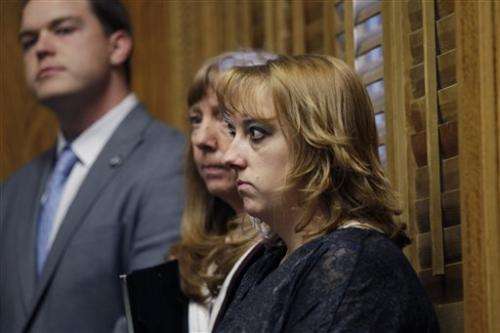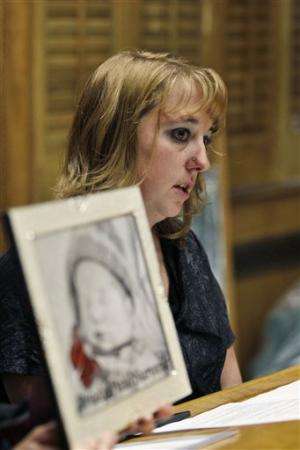APNewsBreak: Catholic hospital acknowledges error

(AP)—A Catholic hospital on Monday acknowledged it was "morally wrong" for its attorneys to argue in court that a fetus is not a human being under Colorado law.
The admission comes after executives of Catholic Healthcare Initiatives met with Colorado's Roman Catholic bishops to discuss its defense in a wrongful death lawsuit filed after a mother and her unborn twins died in the emergency room of St. Thomas More Medical Center in Canon City in 2006.
Disclosure of the hospital's successful legal arguments last month drew sharp criticism because they appeared to contradict church doctrine that life begins at conception. Colorado's bishops vowed to review the case. Catholic Healthcare Initiatives operates Thomas More and dozens of other Catholic hospitals.
In joint statements released Monday morning, the Bishops and CHI said the operation was "unaware" of the lawyers' legal arguments. They said that CHI executives acknowledged "it was morally wrong" to make that contention because it "directly contradicts the moral teachings of the Church."
The statements also noted that, while the legal status of the fetus was key to getting the case dismissed before trial, the hospital also won on appeal by arguing there was no proof that medical error caused the fetuses' deaths. The father of the unborn children is asking the Colorado Supreme Court to hear the case.
The Bishops and CHI extended their condolences to the family. They also pledged to pursue stronger legal protections for unborn children.

"Catholic healthcare institutions are, and should, be held to the high standard of Jesus Christ himself, who is our divine and eternal healer," said the Bishops' statement.
News of the wrongful death lawsuit came as Colorado lawmakers weigh how far they should go in penalizing acts that harm a fetus, and some worry that the case could diminish the Catholic Church's credibility in advocating more rights for the unborn.
Spurred on by advancing medical technology that makes fetuses more viable and more visible, states have been expanding some rights to fetuses, sometimes in conjunction with anti-abortion groups and the Catholic Church.
According to The Guttmacher Institute, which tracks reproductive health issues, 37 states allow some form of prosecution for killing a fetus. A federal law also makes it a crime to harm a fetus while committing other federal crimes.
In 1986, a federal court ruled that fetuses are indeed people for purposes of wrongful death lawsuits in Colorado, but state courts have offered conflicting views. This latest case further calls the matter into question.
The case centers on St. Thomas More Medical Center in Canon City, a few hours south of Denver, and a wrongful death lawsuit filed by a husband who lost his pregnant wife.
Lori Stodghill was 28 weeks into her pregnancy when, on New Year's Day 2006, she began vomiting and feeling short of breath, according to court papers. Her husband, Jeremy, took her to the emergency room of St. Thomas More, where Stodghill collapsed and went into cardiac arrest.
Doctors and nurses tried to revive her, but she was declared dead from a pulmonary embolism. No one tried to remove the fetuses via an emergency cesarean section, and they perished, too, court papers said.
Jeremy Stodghill sued the hospital, some doctors and Catholic Healthcare Initiatives, which owns the company that operates Thomas More. Attorneys for CHI in 2010 filed court papers asking a judge to dismiss the case because the plaintiffs couldn't prove negligent care killed Lori Stodghill and her fetuses. They also argued that "under Colorado law, a fetus is not a 'person,' and Plaintiff's claims for wrongful death must therefore be dismissed."
The trial judge agreed, finding that previous state cases required a fetus to be "born alive" to have a legal claim. An appellate court upheld the dismissal on other grounds. Stodghill's attorneys are now asking the state Supreme Court to hear the case.
The arguments were first reported on Jan. 23 by The Colorado Independent and Westword and set off a firestorm because of Catholic health groups' past stances on such issues. The trade group representing Catholic Hospitals opposed a provision of the federal health care law mandating that birth control be covered by insurance.
Copyright 2013 The Associated Press. All rights reserved. This material may not be published, broadcast, rewritten or redistributed.
















